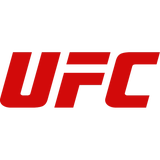
How do you properly market fighters? UFC co-founder Art Davie weighs in

One of the biggest problems facing the UFC in the World Domination Era is the relative anonymity of a sizable amount of their fighters. For everyone but the most ardent fan, it's hard to distinguish between the No. 12-ranked welterweight from Brazil and the No. 15-ranked bantamweight from Colorado, let alone two unranked guys or girls making their debuts.
The UFC is running so many shows -- almost 50 in 2014 -- that many of the athletes and bouts seem interchangeable. Even UFC president Dana White admitted last week after UFC 175 that hardcore fans have complained to him that they don't know all the fighters' names anymore.
It's almost impossible to when there are fights almost weekly airing on pay-per-view, FOX, FOX Sports 1, FOX Sports 2 and now the UFC Fight Pass digital network. It is the UFC's job to make every fighter and matchup matter in its own way -- and that's one heck of an undertaking.
"There are 400 people on that roster that you have to say, 'Who? Who are they?'" UFC co-founder Art Davie said last week in Las Vegas. "It's a major job."
Davie, whose book "Is This Legal?" about the birth of the UFC is out right now, was truly the UFC's first "promoter." He signed fighters for UFC 1 through UFC 18, not just because they were excellent at their particular martial art, but because of their marketability as well. Davie credits that for helping get the UFC off the ground.
"I personally believe I came along at the right time, I had the right plan and I was the right guy to drive it," he said.
Of course, back then the UFC itself was a unique spectacle. No one knew what it was. It no longer is that; not when it is on regular television four times a year and cable on a regular basis. Now, the trick is to get people invested in the men and women fighting.
How do you do that? It's not easy. Davie said the promoter, athlete and athlete's manager have to work together to form a strategy. Every promoter wants the next Muhammad Ali, until he doesn't anymore. Sometimes building someone who transcends a sport is a humbling process.

Art Davie says the UFC could use five Ronda Rouseys.
"The promoter is going to be afraid of that, because there's the real prima donna of the sport and that makes every promoter shake in his boots," Davie said.
We've already seen White and UFC light heavyweight champion Jon Jones clash at times. Jones' manager Malki Kawa has likened Jones to a modern-day Ali and maybe he approaches that level of popularity. He certainly has the skill level and personality Davie is attracted to in competitors. UFC women's bantamweight champion Ronda Rousey has it, too. Davie said the UFC "could use five Ronda Rouseys in this sport."
"There's a lot of fighting skills out there," Davie said. "That's not the problem. You have to find somebody interesting, charismatic and who can fight."
Davie said that isn't necessarily the promoter's job alone, nor is it just the fighter's responsibility. It has to be a partnership, like in the golden days of boxing.
"The era of Jack Dempsey, is the era of Tex Rickard, great promoter," Davie said. "The era of Joe Louis is the era of Mike Jacobs, great promoter. The era of Muhammad Ali is the era of Don King. So there is a synergistic relationship between the promoter and the talent."
White has certainly shown his chops as a promoter. The UFC has, at times, showcased those three letters above any of its fighters. In a way, it makes sense. The UFC will be around longer than Jones and Rousey will compete. But perhaps it's a bit short-sighted.
At the end of the day, Davie said, the fans are going to be the ones who decide what they want to watch. And it's up to the promoter, the fighter and his or her management to figure out what that is.
"What can we do to connect the talent with the fanbase?" Davie said. "What is the fanbase thinking of doing today? What do they want to see? How can we find people who can connect with that who are athletes? Because that's your job and I think a promoter has to be as cognizant of that as they do about fighting skills."

It's not just UFC president Dana White's job to market fighters, says Art Davie.
Davie had the idea that fans wanted to see masters from different martial arts disciplines fight each other with little rules. He'll tell you himself it wasn't solely his idea -- he borrowed from things like Greek Pankration. But the UFC has grown into a multi-billion dollar industry stemming from his work and the work of others like him back in the early 1990s.
Davie won't be getting back into MMA promoting any time soon. He's happy now promoting his book and possibly following it up with more. "Is This Legal?" also has the option to be turned into a movie, which Davie is exploring. Other than that and "smoking good cigars," the 67-year-old Brooklyn native believes his days of booking fights and building brands is up.
"I think my time has passed," Davie said. "I think I'm at the sunset years."
But still with plenty of stories to tell.
